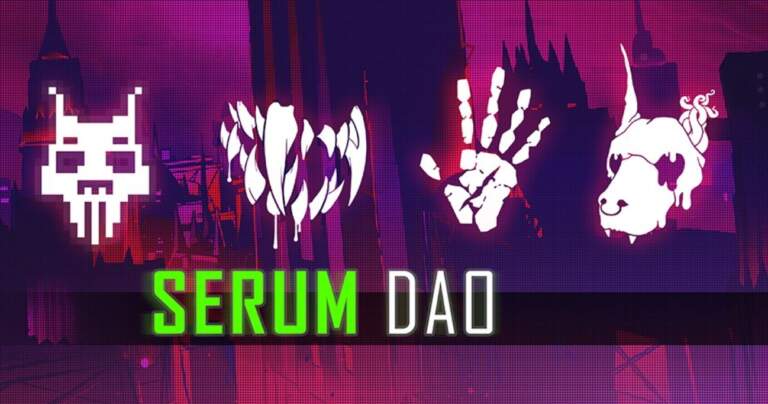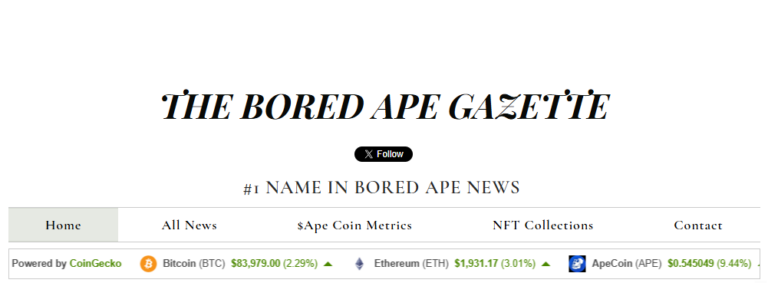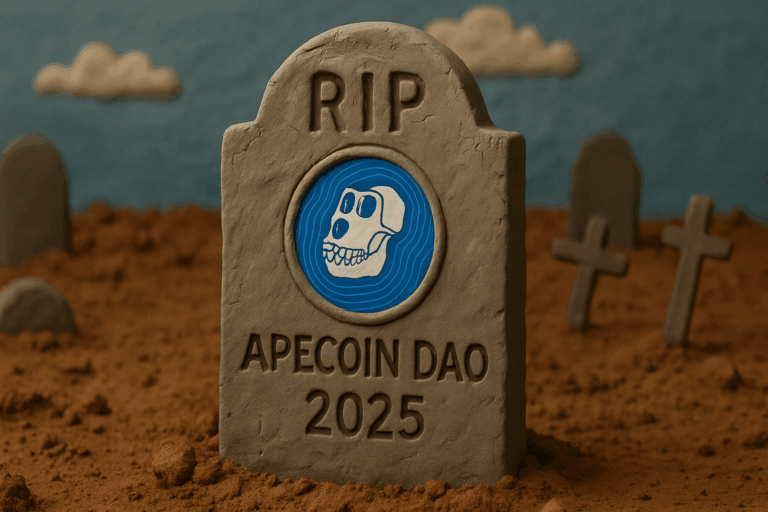In the world of decentralized autonomous organizations (DAOs), a persistent challenge threatens their foundational promise: governance participation remains stubbornly low. Many DAOs struggle to reach quorum on critical votes, while token holders find the process of staying informed and voting too demanding for too little reward. This governance gap isn’t just an inconvenience—it threatens the security and future of DAOs themselves.
Event Horizon has emerged as a solution to this fundamental problem, combining AI technology with economic incentives to make governance both accessible and rewarding. This public good is transforming how DAOs operate by addressing both sides of the governance equation: voter participation and token delegation.
The Twin Problems Plaguing DAO Governance
Before we explore Event Horizon’s innovations, let’s understand the core issues they’re addressing:
1. The Participation Problem
DAO governance demands an unrealistic level of commitment from participants. To be truly effective, a voter must:
- Read and comprehend technical proposals
- Stay current with forum discussions
- Participate in community calls
- Review working group reports
- Monitor multiple chat channels
- Vote on Snapshot proposals
- Write vote rationales
- Vote on on-chain proposals
- Maintain expertise across DeFi, gaming, operations, grants, and more
This level of engagement might be feasible for full-time DAO contributors, but it’s impossible for most token holders. The result? A tiny fraction of eligible voters actually participate.
2. The Token Participation Problem
Meanwhile, most DAO tokens sit idle, delegated to inactive delegates or not delegated at all. This creates two serious issues:
- The Quorum Challenge: As circulating supply grows (through vesting investor tokens and treasury grants), the threshold for quorum increases. Without active delegation, it becomes harder to reach quorum.
- The “Satoshi Wallet” Effect: When delegates stop participating but their delegated tokens aren’t redelegated, these tokens remain technically part of the votable supply but functionally useless—similar to Bitcoin in Satoshi’s wallet.
The combination is toxic. Arbitrum DAO research suggests that within a year, 99% of their proposals may fail to reach quorum. This isn’t just a governance inconvenience—it’s a security risk, as lower active supply makes malicious proposals easier to push through.
Event Horizon’s Two-Pronged Solution
Event Horizon addresses these challenges through two complementary systems:
The Emperor-Consul AI Agent Model
Event Horizon’s signature innovation is the AI consul system. Each user (the “emperor”) creates a personal AI agent (the “consul”) calibrated to their preferences, risk tolerance, and governance philosophy.
These consuls aren’t just voting bots—they’re sophisticated AI representatives that:
- Vote based on user preferences
- Monitor forum discussions for context
- Write thoughtful commentary on proposals
- Suggest improvements to active proposals
- Support multiple languages
- Use a RAG database for comprehensive context
The consul continually learns from user feedback, becoming a more accurate representative over time. This compresses the entire governance burden into simple conversations with an AI assistant.
Incentivized Delegation Vaults (IDVs)
To address the token participation problem, Event Horizon created IDVs—a novel system that makes delegation financially rewarding.
The concept is simple: DAOs provide tokens to Event Horizon, which redistributes these tokens as yield to users who delegate their voting power to Event Horizon’s community pool. The result creates value for everyone:
- Token holders earn yield on previously non-productive assets
- DAOs see increased votable supply, making quorum achievable
- Retail voters gain increased influence through Event Horizon’s community-controlled voting power
What makes IDVs uniquely appealing is their risk-free nature:
- No asset transfers required
- One-click signature process
- No smart contracts involved
- No time commitment
- Automatic reward distribution
The Impact So Far
Event Horizon has achieved remarkable traction:
- $500M+ in voting power processed
- $7-15M in active delegation (fluctuating with market conditions)
- 8 DAOs supported: Arbitrum, Optimism, Uniswap, Compound, ZKsync, Scroll, ShapeShift, and Gitcoin
- 230+ AI agents operating autonomously
These numbers represent real governance impact—millions in voting power that would otherwise sit idle is now actively shaping DAO decisions, and hundreds of users who would otherwise be excluded from governance are now represented.
How Event Horizon Works in Practice
For Individual Users
Imagine Sarah, who holds ARB tokens but can’t keep up with Arbitrum governance. With Event Horizon:
- Sarah creates her AI consul, answering questions about her governance preferences
- The consul monitors all Arbitrum proposals and forum discussions
- When a proposal appears, the consul shows Sarah how it plans to vote
- Sarah can approve, override, or discuss the decision with her consul
- The consul represents Sarah’s interests in the vote
- Sarah receives a report of recent votes and governance activity
Sarah stays involved in governance without the overwhelming time commitment.
For Token Holders
Now consider Michael, who holds COMP tokens but sees no reason to delegate them:
- Michael discovers he can earn yield by delegating to Event Horizon
- He signs a delegation transaction (no token transfer)
- His tokens join Event Horizon’s community-controlled voting power
- Michael receives airdropped rewards weekly based on his delegation value
- He can withdraw his delegation at any time with no penalty
Michael now earns passive income while contributing to Compound’s governance health.
For DAOs
Optimism DAO faces declining voter participation and struggles to reach quorum:
- Optimism allocates some OP tokens to Event Horizon for IDV rewards
- Token holders are incentivized to delegate to Event Horizon
- The votable supply increases, making quorum achievable
- More retail participants join governance through AI consuls
- Proposals receive more diverse input and higher participation
Optimism gains improved governance resilience and participation.
The Road Ahead: Event Horizon’s Future Development
Event Horizon continues to evolve with several promising features on its roadmap:
Sacrificial Specialization
Users will soon be able to give up voting power in certain areas (like gaming or operations) to increase their influence in areas of personal expertise (like DeFi or grants). This creates a more specialized, efficient voting system.
Expanded Forum Communication
Event Horizon is integrating directly with forum discussions, allowing AI consuls to contribute meaningfully to pre-vote governance processes. The system will provide consolidated perspectives from hundreds of agents while avoiding content overload.
Bidirectional Forum Communications
Community members will be able to tag and interact with the agent swarm directly in forums, creating a more responsive governance conversation.
Proposal Forecasting and Modeling
Using accumulated data, Event Horizon will soon predict how individual delegates and voter groups might respond to proposals before they’re published. This will help proposal authors align with stakeholder preferences early, reducing iteration cycles.
Flexible Voting
Moving beyond winner-takes-all voting, Event Horizon will implement proportional split voting, where if 60% of Event Horizon voters support a proposal and 40% oppose it, the pool will vote with a proportional 60-40 split.
Swarm Coordination
Future versions will enable AI agents to communicate with each other, reaching more sophisticated consensus through collaboration rather than simple majority voting.
Why Event Horizon Matters for the Future of DAOs
The governance challenges Event Horizon addresses aren’t just operational inconveniences—they strike at the heart of the DAO promise.
DAOs were created to enable decentralized decision-making, but the current reality often falls short. When governance demands unrealistic time commitments, it becomes centralized by default, controlled by the few who can dedicate themselves full-time.
By making governance accessible to ordinary token holders through AI representation and by incentivizing broader token participation, Event Horizon helps DAOs fulfill their original promise: truly decentralized governance that represents all stakeholders, not just the most dedicated.
Security Implications
Low voter participation doesn’t just hurt representation—it creates security vulnerabilities. When the active supply is a small fraction of the total, the cost of pushing through a malicious proposal drops dramatically.
By increasing the active voting supply, Event Horizon makes governance attacks more expensive and less feasible. This is particularly vital as DAOs control increasingly valuable treasuries.
Innovation Pipeline
Low participation also constricts the flow of new ideas. When only a small group participates in governance, proposal creation becomes centralized, and groupthink becomes likely.
By bringing more diverse participants into the governance process, Event Horizon helps DAOs benefit from collective intelligence, surfacing novel ideas and approaches that might otherwise never reach consideration.
Getting Started with Event Horizon
For individuals and token holders interested in exploring Event Horizon:
- Visit https://eventhorizon.vote/
- Connect your wallet
- Create your AI consul by answering preference questions
- Delegate tokens (optional) to earn yield
- Start participating in governance with minimal effort
For DAOs interested in partnering with Event Horizon:
- Explore IDV implementation to improve token participation
- Consider ways to integrate Event Horizon with existing governance processes
- Reach out to discuss customized solutions for your community
Conclusion: Governance That Works for Everyone
The governance challenges facing DAOs aren’t going away on their own. As these organizations grow in value and impact, the stakes of functioning governance only increase.
Event Horizon represents a pragmatic path forward—one that doesn’t require unrealistic time commitments from participants or expect token holders to delegate without incentives. Instead, it meets people where they are, providing usable tools that make governance both accessible and rewarding.
Through AI representation and economic incentives, Event Horizon is helping create DAOs that work as intended: decentralized organizations where decisions reflect the true will of the community, not just its most dedicated members.
The future of governance is not in demanding more from people—it’s in building better systems that work for people as they are. Event Horizon shows what that future might look like.
Visit https://eventhorizon.vote/ to learn more about how Event Horizon is transforming DAO governance.








Leave a Comment